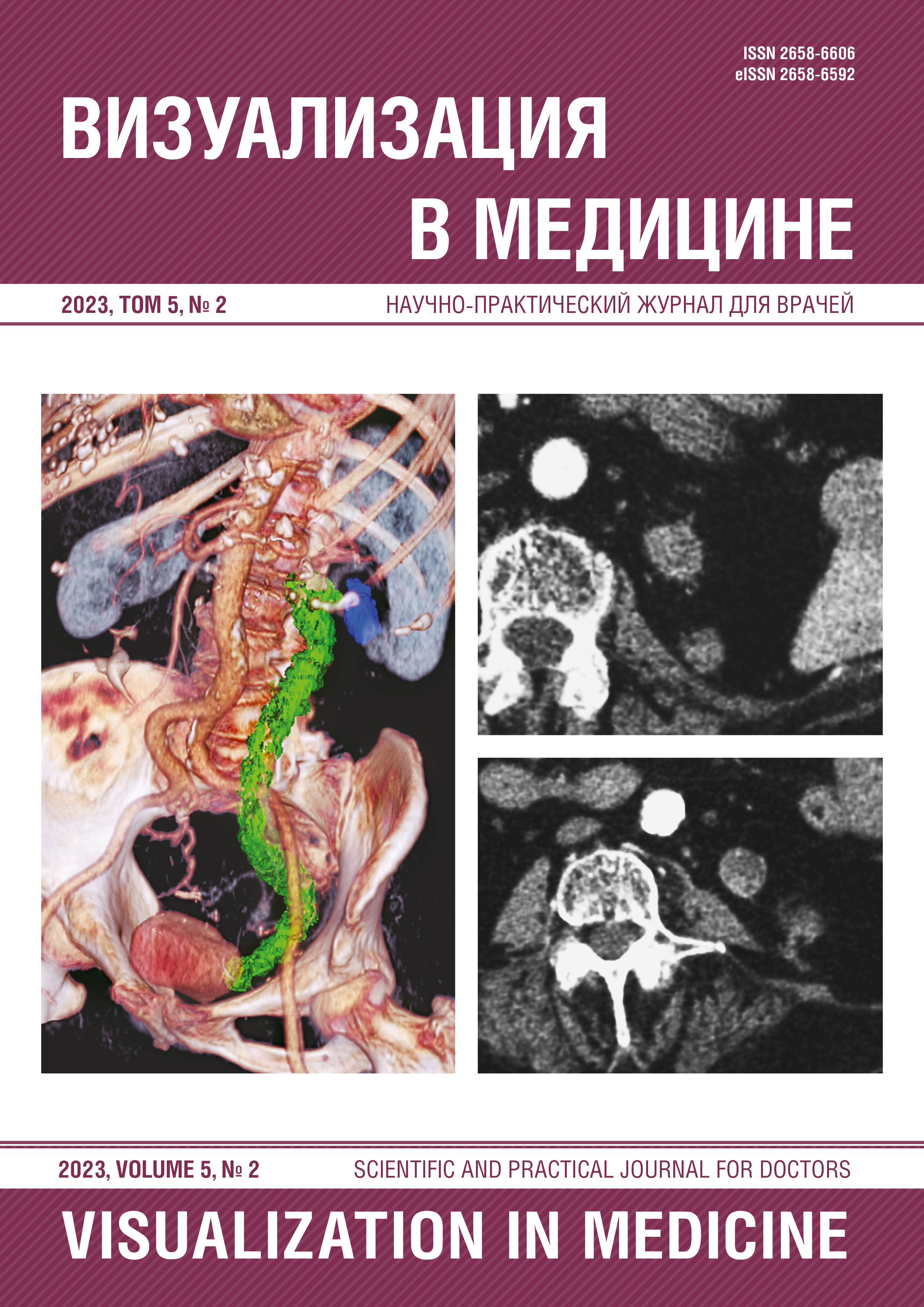USING IMMUNOTHERAPY EFFICACY CRITERIA (iRECIST) IN THORACIC ONCOLOGY
Abstract
The history of use, pathophysiological bases and criteria for evaluating the effectiveness of immunotherapy according to CT data are considered. The article describes the main options for tumor response to immune therapy, gives examples of rare responses (pseudoprogression and hyperprogression), as well as complications associated with the use of immune therapy. Materials and methods. Data of disease histories of 33 patients treated with immune therapy were analyzed. The average age of patients was 65 years (ranged from 43 to 84 years). At 5 pats. was diagnosed with small cell lung cancer, in 20 patients — non-small cell lung cancer (squamous cell carcinoma, adenocarcinoma), in 4 patients — esophageal cancer, in 4 patients — lymphoma. Results. Response criteria: partial response prevailed in 11 patients, stabilization and complete response were detected equally (14 patients), process progression was determined in 8 patients, including hyperprogression in 3 patients. Pseudoprogression was established in 4 patients (12%), toxic lesion of pulmonary parenchyma — in 5 patients (15%). Conclusions. The accumulation of experience and knowledge of the characteristics of the radiation pattern of various response options (both favorable and not), pseudoprogression and toxic immune responses according to the data of the assessment of the effectiveness of immunotherapy (iRECIST) in thoracic oncology contribute to the correct management tactics of patients and their survival.



